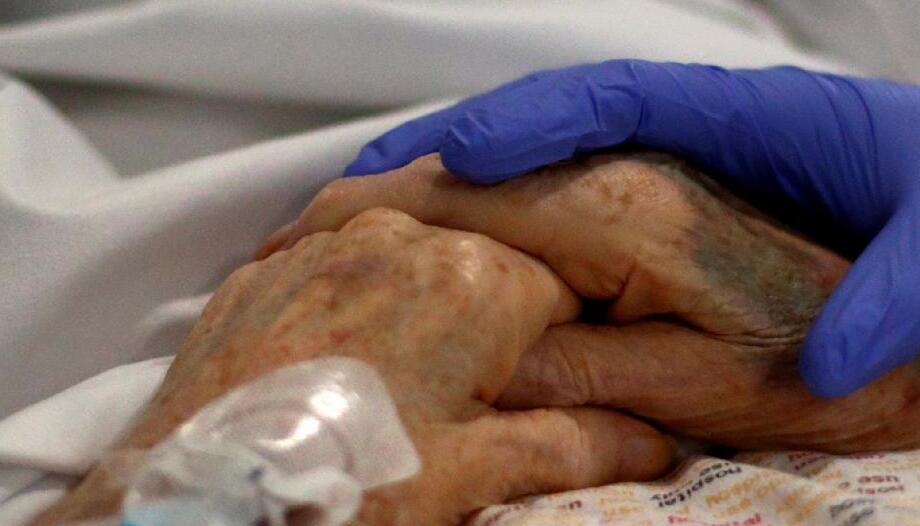Expectation of the initiative by Labor MP Kim Leadbeater, a co-sponsor of the bill, was significant in the Lower House, being the first time in almost ten years that the issue had been debated in parliament. In 2015, a similar bill was rejected by a large majority.
The bill has divided the ParliamentThe deputies have been given freedom to vote, leaving aside the party's thesis. In the final vote, the Bill on Adults with Terminal Illnesses was approved with 330 votes in favor, against 275 negative votes, so it will continue its parliamentary processing.
For context, it is worth remembering that in the last elections, in July of this year, Labour won a significant victory over the Conservatives, taking 412 seats out of 650, compared to 121 for the Tories, 72 for the Liberal Democrats, and the rest for other parties.
In a few countries, especially in Europe
– Supernatural êutanasia and/or assisted suicide are decriminalized in few countries in the world. Netherlands. Belgium, Luxembourg, Canada, Spain, Austria (assisted suicide), Colombia (constitutionally permitted but criminally sanctioned), Switzerland (cooperation to suicide authorized under certain conditions), some U.S. states (when expected survival is six months or less), and New Zealand and some Australian state (as 'assisted dying').
British, Welsh and Scottish bishops call for prayer
The English and Welsh bishops have long been inviting Catholics to join in prayer that this assisted suicide bill will not go ahead. Just this month, the British Cardinal Vincent Gerald Nichols asked Catholics to join him and the bishops in pausing for an hour on November 13, 2024, to pray for the dignity of human life before the vote on assisted suicide that took place today in the United Kingdom. Before the Blessed Sacrament, in parish churches or in their own homes.
The appeal has been made through the web of the Episcopal Conference. In a statementalso signed by the Scottish prelates, the bishops explain "what 'compassion' at the end of life means: to care for and accompany people, particularly in times of suffering.
Protecting the most vulnerable, and palliative care
The text "strongly advocates for the vulnerable in society who are at risk through this proposed legislation, and the bishops advocate for better funded palliative care to be consistently available to all those in need in England, Wales and Scotland."
"Suffering people need to know that they are loved and valued. They need compassionate care, not help to end their lives," the bishops say. "Palliative care, with expert pain relief and good human, spiritual and pastoral support, is the best and most appropriate way to care for people toward the end of life."
"Regrettably insufficient time."
"The time given to Parliament to consider the End of Life for Terminally Ill Adults Bill, which will allow assisted suicide, is woefully inadequate," the bishops add.
Although the bill indicates that safeguards will be put in place, "the experience of other countries where assisted suicide has been introduced shows that these promised safeguards are soon forgotten. In Belgium, the Netherlands, Canada, and parts of the United States, the criteria for assisted suicide have been significantly expanded, in law or in practice, often to include people with mental illness and others who do not have a terminal diagnosis."
The bishops affirm the Catholic belief in human dignity and the sanctity of life, but fear that a law allowing assisted suicide could lead some to experience "the duty to die."
Almost half a million people in need of palliative care
The health correspondent of the BBCThe broadcaster, which has provided extensive coverage of the parliamentary debate, said during the speeches that it is estimated that three quarters of people need palliative care at the end of their lives, that is, around 450,000 people a year throughout the United Kingdom. But a significant number of people are unable to access it, estimated at around 100,000.
Division in the Labour ranks, and in the "Tories".
In her closing remarks in the House of Commons, Labour MP Kim Leadbeater stressed that today's vote on "the Assisted Dying Bill," as she called it, marks 'the beginning, not the end' of the debate around the issue.
However, "the focus should be on getting palliative care right," argued fellow Labour member Rachel Maskell, who noted that funding for palliative care "has gone backwards and hospices are reducing their services, which she said needs to be sorted out before we start discussing the assisted dying bill."
For his part, Conservative MP Danny Kruger has argued that if the country's palliative care system is improved and hospices ('hospices': institutions offering palliative care) are funded, it would be possible to do 'much more' for people.Kruger has assured that it will then be possible to "help people to die with the minimum suffering". "Let's not authorize suicide, which, by the way, again there is evidence that all over the world suicide is increasing among the general population, suicide is contagious," he has said.








